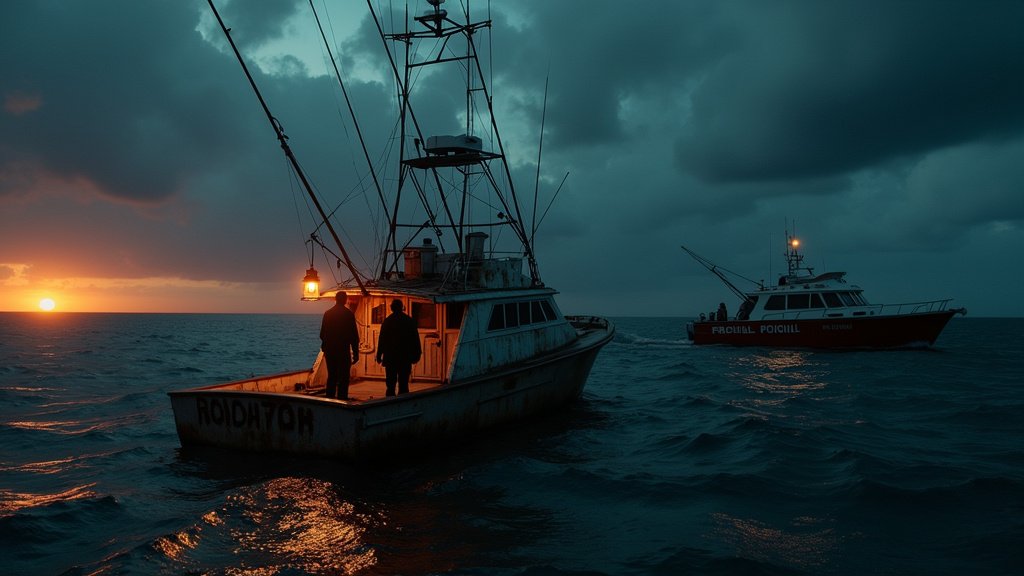Florida’s recently enacted “Boater Freedom Act” is drawing fire from critics who fear the legislation may inadvertently bolster illegal poaching activities, potentially undermining vital marine wildlife conservation efforts. The law, which recently went into effect, has sparked a vigorous debate over its potential ramifications for the state’s delicate marine ecosystems and the ability of law enforcement to effectively monitor and regulate boating activities.
A Clash of Interests: Boating Rights vs. Conservation
The core of the criticism centers on provisions within the Boater Freedom Act that some believe could limit the capacity of authorities to oversee and control boating. This has ignited concerns that the law might unintentionally create loopholes, thereby making it easier for individuals to engage in illicit fishing and poaching practices. Conservationists and environmental advocates are particularly worried about the potential impact on areas already vulnerable to poaching, fearing a surge in illegal activities.
Many within the conservation community express worry that the act, despite its intended goals, might incentivize these activities, especially in areas where existing conservation measures are in place. The debate highlights a clash of interests between those advocating for greater boating freedoms and those prioritizing the preservation of Florida’s rich marine biodiversity. The Act’s long-term effects on the state’s coastal areas are currently a source of significant concern and speculation.
Enforcement Challenges and Loophole Concerns
The primary point of contention revolves around how the law will influence enforcement capabilities and whether it might inadvertently introduce loopholes that weaken existing conservation measures. Critics suggest that any reduction in the ability of law enforcement to monitor boating activities could provide cover for those engaging in illegal practices. This is particularly worrisome given the prevalence of poaching in certain areas along Florida’s extensive coastline.
The specifics of the Boater Freedom Act, particularly those related to monitoring, inspections, and regulations, are under close examination. Analysts are trying to gauge the extent to which these changes could impede the work of agencies tasked with protecting marine life. The possibility of reduced oversight has fueled the apprehension among environmentalists, who argue that effective enforcement is crucial for deterring illegal activities and safeguarding vulnerable species.
The Vulnerable Ecosystem: A Target for Poachers
The concern is not just theoretical. Poaching has historically posed a significant threat to Florida’s marine ecosystems, targeting a variety of species. The potential for an increase in poaching activities under the new law is especially worrisome in areas already facing pressure from illegal fishing. Experts are evaluating whether the Boater Freedom Act will exacerbate these challenges, putting already fragile populations at further risk.
The focus on areas vulnerable to poaching reflects the understanding that these regions require heightened protection. The introduction of any measure that could hinder enforcement efforts in these sensitive zones raises alarms. The potential consequences of unchecked poaching include the decline of target species, disruption of the marine food web, and broader ecological damage.
A Call for Review and Mitigation
As the Boater Freedom Act takes effect, stakeholders are urging for close monitoring and possible adjustments to mitigate potential negative impacts. The debate surrounding the legislation highlights the need for a balance between promoting recreational boating and safeguarding the state’s natural resources. Many argue that any changes in regulations must be carefully considered, with a primary focus on ensuring that enforcement capabilities are not compromised.
The current situation emphasizes the delicate nature of marine conservation and the complex challenges of balancing competing interests. The unfolding scenario serves as a reminder of the importance of proactive measures to protect Florida’s natural treasures. The future efficacy of the Boater Freedom Act remains a critical topic of discussion and evaluation, with ongoing assessments likely shaping the state’s approach to maritime regulation and marine conservation in the years to come.





